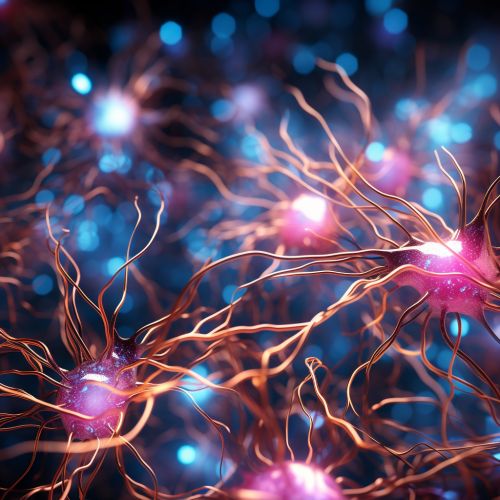Mirror Neurons
Introduction
Mirror neurons are a type of neuron that fires both when an individual acts and when the individual observes the same action performed by another. These neurons have been directly observed in primates and are believed to exist in humans and other species. Although their existence in humans is still a topic of debate, there is a growing body of evidence supporting their presence and their potential role in various aspects of human cognition.


Discovery
Mirror neurons were first discovered in the early 1990s by a team of Italian researchers at the University of Parma's Department of Neuroscience. The team, led by Giacomo Rizzolatti, was studying the neural activity of macaque monkeys when they noticed a group of neurons in the premotor cortex that fired both when the monkey performed an action and when it observed the same action performed by a researcher.
Mechanism of Action
Mirror neurons are thought to work by simulating the actions of others in one's own brain. When an individual observes an action, the same pattern of neural activity that is associated with performing that action is activated in the observer's brain. This "mirroring" of activity allows the observer to understand and predict the actions of others.
Role in Cognition
Mirror neurons have been proposed to play a crucial role in several aspects of cognition, including:
Understanding Actions
Mirror neurons may help individuals understand the actions of others by simulating those actions in their own brain. This could provide a neural basis for action understanding, imitation, and the ability to learn new skills through observation.
Empathy and Theory of Mind
Mirror neurons may also contribute to empathy and theory of mind, the ability to understand the mental states of others. By simulating the actions and emotions of others, mirror neurons could allow individuals to "feel" what others are feeling and understand their intentions and beliefs.
Language Processing
Some researchers have suggested that mirror neurons may play a role in language processing. The "gestural" theory of language evolution proposes that language evolved from a system of manual gestures, and that mirror neurons, with their ability to match observed actions with motor commands, played a crucial role in this process.
Controversies and Criticisms
Despite the wide-ranging implications of mirror neuron research, the existence and function of these neurons in humans remain controversial. Some researchers have criticized the methodology of mirror neuron studies, arguing that the evidence for mirror neurons in humans is indirect and based on weak correlations.
Critics also argue that the proposed roles of mirror neurons in human cognition are speculative and lack empirical support. They suggest that other mechanisms, such as associative learning, could explain the phenomena attributed to mirror neurons.
Future Directions
Despite these controversies, research on mirror neurons continues to be a vibrant field of study. Future research directions include the use of more direct methods to study mirror neurons in humans, such as single-neuron recording, and the development of computational models to better understand the function of these neurons.
